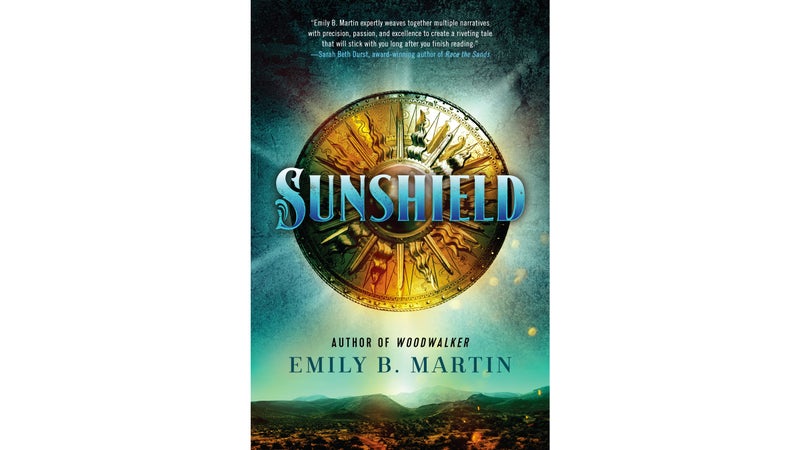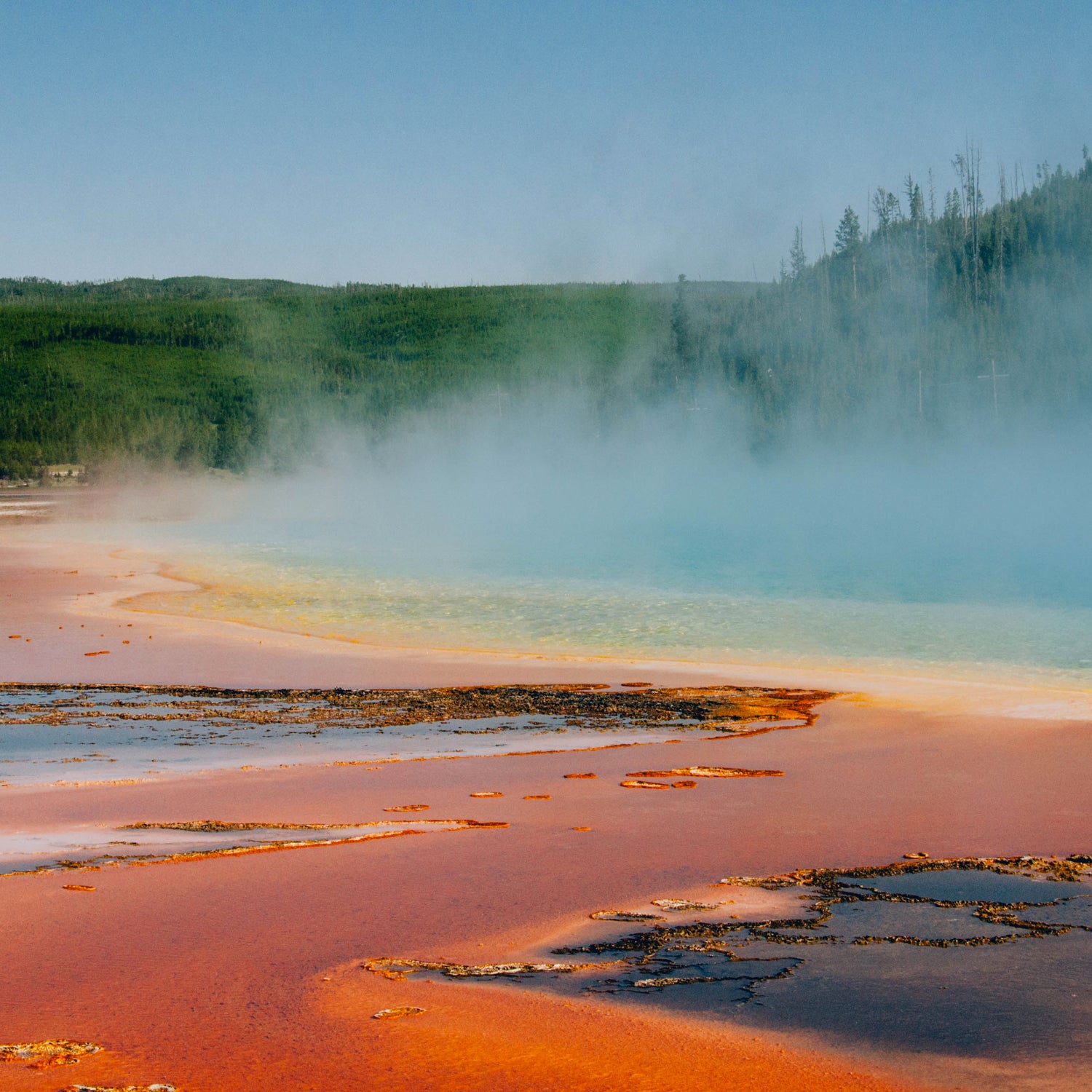When Emily B. Martin was a kid, she had lots of dream jobs, including writer, illustrator, and National Park Service ranger. But all three at once? She never imagined she’d hit that jackpot. Today, however, that’s exactly what she’s doing, using her experiences as a park ranger as inspiration for popular adventure-fantasy novels.
Martin’s latest book, Sunshield, is an engrossing story that takes place in a troubled world full of dramatic landscapes. It covers hefty themes like conservation, human trafficking, and gender equality, and its settings are inspired by environments Martin knows well. “I first conceived of Sunshield when I was working in Yellowstone as a ranger,” she says. “Like many of my stories, it was really the natural setting that fueled the story.”
It is the first title in a duology that Martin is calling The Outlaw Road, set in the fantastical Eastern World that she created and explored in her past works. Martin illustrated the maps of the Eastern World that are included in the beginning of the book, helping readers better visualize the land as she does: the dusty deserts and canyons of the country of Alcoro were inspired by her time working at Philmont Scout Ranch, located in the Sangre de Cristo Mountains of New Mexico, while the lush scenery of Moquoia, another Eastern World nation, is meant to invoke the maple, cedar, and redwood forests of the Pacific Northwest.
“Awareness can start in a fantasy or fiction novel.”
Sunshield is noticeably absent of vehicles and technology and seems to take place sometime during the 19th century. It follows three protagonists as they fight to end a slave-labor system that powers factories and mining quarries, tears families apart, and physically abuses and exploits bonded workers. The main characters’ lives intersect to reveal how an individual’s choices influence the people and landscape around them—a cornerstone of conservation philosophy that Martin wove into the plot. First, there’s Lark (also known as the Sunshield Bandit), a Robin Hood–like outlaw who rescues bonded workers by holding up the stagecoaches transporting them. Then we have Veran, a sometimes-insecure diplomat hoping to dismantle the labor system. Finally, Tamsin is a prisoner captured for speaking the truth about the system’s corruption, a narrative that becomes the focal point of the book’s climatic rescue mission.
Martin tackles subjects like human-rights abuses and socioeconomic inequality in a compelling way. The bonded workers Lark rescues, for instance, have all experienced emotional and physical traumas, which are discussed frankly. Many characters have dark skin—a far cry from fantasy literature of the past, which reflected predominantly white men. There’s also feminist bent to the story, one found in Martin’s books more generally. “As a park ranger, I work with women who are firefighters, cops, and bear researchers,” Martin says. “Strong female characters are the least fantastical part of these stories.” The result is a believable—and better yet, relatable—set of female characters.
The book also contains subplots about topics like ecological interconnectedness and species loss. At one point in the story, hundreds of thousands of birds begin to die outside Moquoia’s glass palace after flying into its transparent, man-made walls; simultaneously, people start to get sick with a deadly flu caused by mosquito bites. Martin raises questions about the overall ecology behind those events in her fantasy world: Could the influx of mosquitoes be related to the dying birds? Are the birds’ deaths preventable?

Martin, who now spends her summers working as a ranger in Yellowstone and Great Smoky Mountains National Parks, knew a thing or two about the American landscape and how to get people to care about it even before she was an author. She has a master’s degree in parks management, and her graduate studies focused on assessing how ranger programs could more effectively encourage visitors to support preserved areas. “The more we start to see the impact we have, we can’t get away from it,” she says.
Martin hopes her stories will start a larger conversation about social issues and the environmental catastrophes that she sees in her ranger work. “The power of fiction is introducing these issues in such a way that you see it played out on the page, but you’re removed from it,” she says. “Awareness can start in a fantasy or fiction novel.”
It’s this attitude—that together we can change the turbulent state of our world—that Martin relays to readers in Sunshield, using the plot to show how individual actions can make a big difference. Even if that ethos feels fantastically optimistic during these grim times, it’s a step in the right direction.


